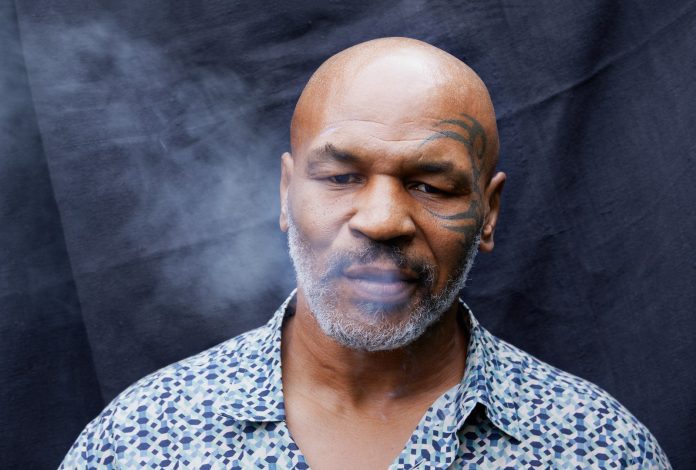Some investors have long believed everyone should allocate some of their portfolios to gold or other commodities. Gold, goes the argument, helps protect your investments from inflation and stock market drops.
Now some are arguing the same thing about Bitcoin.
“My personal belief is allocating to Bitcoin is a logical approach and should have a role in everyone’s portfolio, in the same way that many people believe gold or commodities should, as a diversifier,” Meltem Demirors, chief strategy officer at cryptocurrency investment firm CoinShares, recently told Barron’s Streetwise podcast.
But to what extent is the world’s most popular cryptocurrency similar to the world’s best-known safe-haven asset — and do investors truly need to have gold in their portfolios, anyway?
Bitcoin: a bit like gold but with ‘huge volatility’
The economic downturn triggered by the COVID-19 pandemic has re-ignited inflation fears among some investors.
Many central banks, including the U.S. Federal Reserve and the Bank of Canada, have been increasing the amount of money in circulation in their countries as a way to stimulate economic activity. The playbook is similar to the one central banks turned out during the global financial crisis of 2007-08.
And now, like back then, some fear this kind of monetary policy will eventually fuel inflation.
“The usual idea is that the money supply increases, then people just have more money in their hands and prices will go up,” says Andreas Park, associate professor of finance at the University of Toronto.
Park doesn’t think fears of rampant inflation are justified. Economies like the U.S. and Canada haven’t seen high inflation since the 1980s, he notes.
Currently, the annual inflation rate stands at 1.4 per cent in the U.S. and 0.7 per cent in Canada, far below the two central banks’ target of around two per cent.
But investors who worry about inflation often look to gold as a way to hedge against it. While central banks can dial up the amount of money in circulation, there is only a limited quantity of gold available in the world.
“You have to mine it if you want to add to it,” Park says. “It cannot be inflated.”
The same is true of Bitcoin.
The digital token, which was intended to be an alternative to inflationary national currencies, was designed to have a maximum cap of 21 million coins. New coins are created only as a reward for “miners,” users who employ computing power to record and validate crypto transactions.
So far, around 88 per cent of bitcoins have been mined.
And as with gold, there is little use in the real world for Bitcoin, Park says. You can use gold to make jewelry, for electronics, or as a collectible. And you can use Bitcoin to pay for some goods and services if you find a seller willing to accept crypto. For the most part, gold and Bitcoin are only worth what buyers are willing to pay for them.
Some people also buy Bitcoin, like gold, as an investment that’s not going to be correlated with the performance of the stock market, says Robb Engen, a financial planner and author of the popular personal finance blog Boomer and Echo.
Gold is commonly touted as a safe-haven asset, an investment that will retain or increase in value during times of market turbulence.
But both as an inflation hedge and as a safe-haven investment, Bitcoin comes with “huge volatility,” Park warns.
While gold itself is volatile, Bitcoin’s ups and downs dwarf the precious metal’s price swings, Park says.
On Friday, Bitcoin was trading at around US$32,000 ($40,700), more than 20 per cent below the record high of US$42,000 ($53,500) hit two weeks ago, losing ground amid growing concerns that it is one of a number of price bubbles and as cryptocurrencies catch regulators’ attention.
Traders also blamed the sell-off on a report posted to Twitter by BitMEX Research suggesting that part of a bitcoin may have been spent twice, even if concerns were later resolved.
The pullback still leaves the cryptocurrency some 700 per cent above its 2020 low of US$3,850 ($4,900) hit in March. The dizzying rally has been partly driven by large investors, with a number of Wall Street firms making moves in the crypto space.
JP Morgan Chase, for example, has created and tested its own digital token, JPM Coin, despite CEO Jamie Dimon having been a vocal critic of Bitcoin in the past. The investment banking giant has also started offering banking services to two well-known crypto exchanges, Coinbase and Gemini Trust.
And Paypal announced in October that it would enable U.S. account holders to buy, hold and sell cryptocurrency. Derivatives marketplace CME Group and Fidelity Investments Inc. also offer services that allow for buying and selling crypto assets.
Placing a bet on Bitcoin
Engen sees both gold and Bitcoin as speculative investments. Investing in cryptocurrency may also be a way to get exposure to a technology in its early days.
As with cannabis stocks pre-legalization and the dot-com boom of the late 1990s, investors can make big profits by pouring money into a new industry in its infancy, he says. But with that comes the risk of steep losses when the boom goes bust, he warns.
“By all means, you could use five per cent of your portfolio to make a bet,” Engen says. “But you have to go into it with your eyes open.”
You could lose most of your investment, he warns.
If you do want to dabble in speculative investments, you’ll need to start out with some clear ground rules in mind and stick to them. For example, committing to having no more than five per cent of your investments tied up in volatile crypto assets implies you’ll have to sell a lot of your holdings if they surge in value, which means they’d be taking up a larger share of your portfolio, Engen notes.
But it can be hard to bring yourself to sell investments that saw skyrocketing growth, he adds.
Early success with speculative assets may lead you to believe “you are good at this,” when, in fact, it was just luck, he says.
— With files from Reuters




















